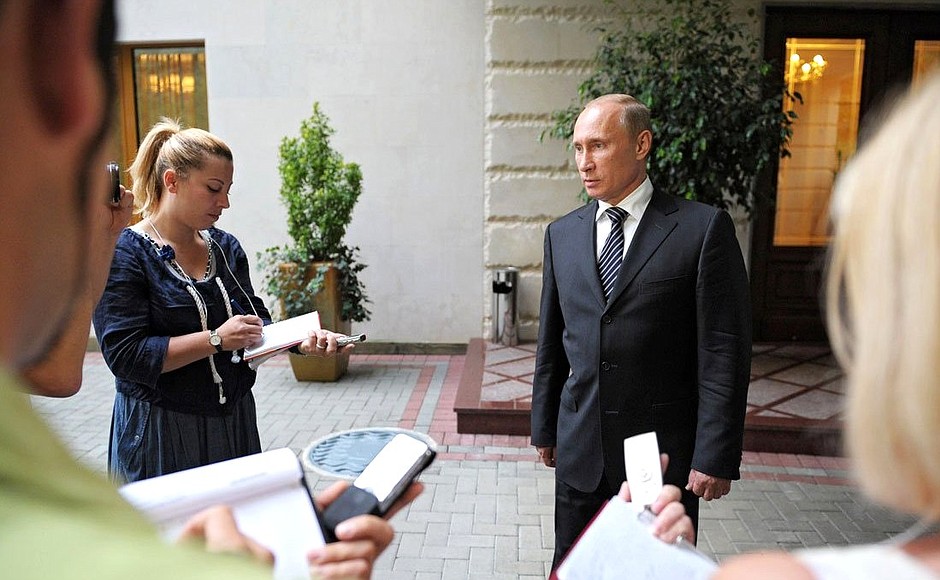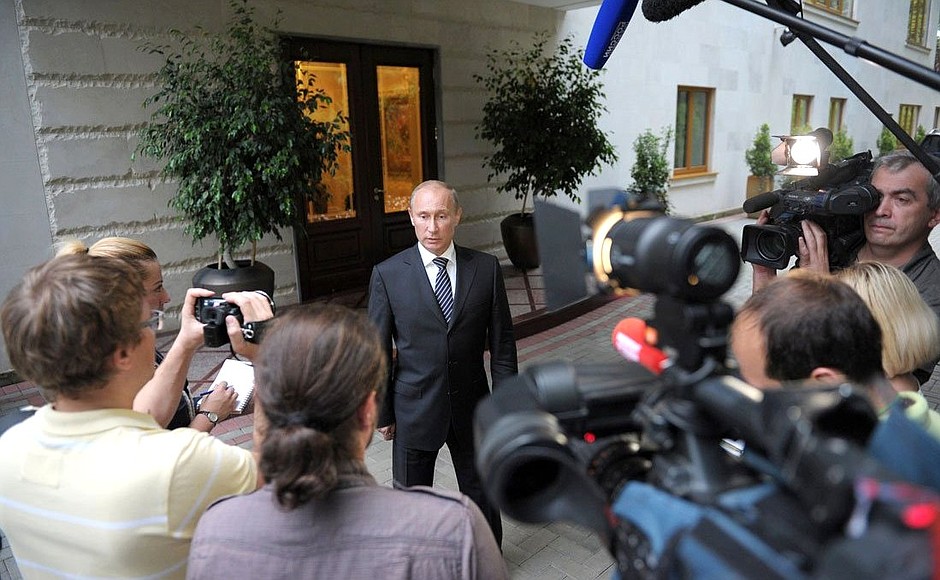* * *
Question: Yesterday, the US ambassador to Libya was killed. Do you know about this terrorist act and what is your opinion on it?
President of Russia Vladimir Putin: Of course I know about it. And there can only be one opinion: we condemn this crime and express our condolences to the families of the victims.
”We do not support any armed groups that attempt to resolve internal problems through force. We always have a disturbing feeling that if such armed groups get support from abroad, the situation can end up in an absolute deadlock.“
Killing a person is a terrible crime, but in this case, we are talking about the killing of diplomats – individuals who are protected by international conventions, whose lives and health are protected by international law. If somebody does not accept this, that means those people are not merely positioning themselves outside the law, but also outside modern civilisation.
In recent years, we have had many differences in opinion with our American partners specifically on the ways of resolving problems in troubled countries. We share the principles of democracy and freedom, and agree that many regions throughout the world have numerous political regimes that do not follow these standards.
The difference in approaches between ourselves and our American partners lies however in the fact that we believe these types of problems should be resolved through difficult but nevertheless peaceful negotiations and lead to positive, long-term-oriented results, to ensure the positive development of those nations and the safe coexistence of all faiths, religious groups and ethnic groups in those countries. This is a difficult, painstaking process that requires patience and professionalism.
We do not support any armed groups that attempt to resolve internal problems through force because we usually can not clearly understand the ultimate goals of those individuals and hence we always have a disturbing feeling that if such armed groups get support from abroad, the situation can end up in an absolute deadlock. We never know the end goals of these “freedom fighters” and we are concerned that the region could descend into chaos which, indeed, is what is already happening.
”We all must be extremely delicate and careful about religious feelings. This requirement applies to all people whether they are adepts of Islam, Christianity, or any other confessions.“
In this regard, I would like to draw the attention of the heads of new governments, the heads of the states that have undergone major changes, to the fact that they also must not forget about their personal responsibility for what is happening in their countries.
Finally, we all must be extremely delicate and careful about religious feelings – the religious feelings of followers of various faiths. This requirement applies to all people whether they are adepts of Islam, Christianity, or any other confessions, because if a state does not react swiftly and rigidly to provocations against religious feelings, then the offended, insulted and humiliated individuals will take it upon themselves to defend their views and interests, and at times, this takes on absolutely unacceptable forms and they may use unacceptable methods.
Finally, I really expect that this tragedy – this certainly is a tragedy, one that, I want to stress, concerns all of us, as we and our Western partners, including US partners, are combating terrorism together – I really expect that this tragedy will motivate us all to intensify our joint – I should emphasise the word joint – struggle against extremism and terrorist threats.

